"Wanli Tea Ceremony" promotes Eastern and Western cultural exchanges and civilization mutual learning
Author:Changjiang Daily Time:2022.08.29
How can a small leaf affect Eurasia and even the world? On August 23 and 24, the visiting group of "Understanding China -Hubei Qianli Yangtze River" along the Yangtze River came to Xianning and Tianmen, entered the origin of the Wanli Tea Ceremony, the Tea Holy Memorial Hall, and explored the magic of the interpretation of Jingchu tea culture. story.
Marx mentioned in "On the Sino -Russian Tea Trade" in Yanglou Cave Brick Tea
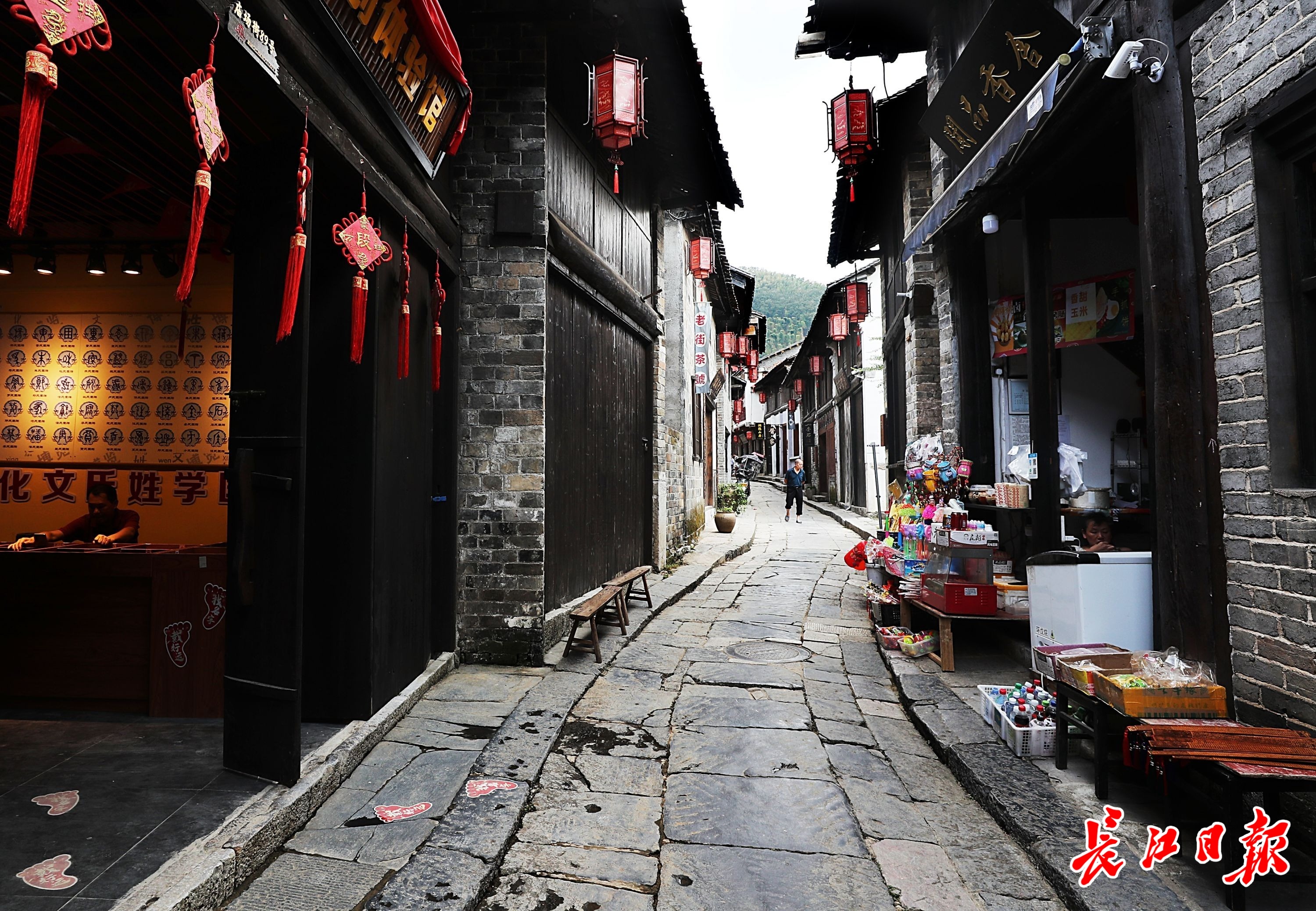
Scenery of Yangu Town, Yanglou, Chibi City, Hubei Province. Changjiang Daily reporter Qiu Yan
Yanglou Cave in ancient town of the Ming and Qing Dynasties is located in Songfeng Mountain, 26 kilometers southwest of Chibi City, and is the key to the junction of the three provinces of Hunan, Hubei and Jiangxi. Rao Jie, deputy manager of Chibi Cultural Tourism Investment Development Co., Ltd., introduced that Yanglou Dong has the name of "Chinese green (rice) brick tea hometown". Sign. In 2015, the International Tea Committee was awarded Yanglou Cave as the "World Tea First Ancient Town" and "Wanli Tea Ceremony Source".
"Marx mentioned the brick tea in Yanglou Cave in" On the China -Russia Tea Trade ". Lenin not only drank the tea of Chibi, but also met the tea merchant Liu Junzhou in Chibi Yanglou Cave." Rao Jie said.
Rao Jie introduced that the tea of the Ming and Qing dynasties exported a large amount of tea. Yanglou Dong quickly developed into a world -renowned tea trade town. It is known as the "Little Hankou" and is an important source of "Wanli Tea Ceremony". A large number of tea produced from Yanglou Cave arrived in Hankou through the water transportation of Xindian Tea Port, and then transferred to Mongolia, Russia, and even Central Europe and Western Europe.
Huang Baiquan, an invited expert, a professor at the School of History and Culture, Hubei University, and Dean of the Wanli Tea Ceremony Research Institute, "Wanli Tea Ceremony" is the passage of the tea source of the southern China and the northern region, Russia, and Europe in the first half of the 20th century. Essence
"The green brick tea suppressed by Yanglou Cave is a black tea. It is very popular in nomadic nomadic areas. The sales are unobstructed. They have been as important as food. It once became a hard currency that can be used as currency on the grassland of Inner Mongolia." Huang Baiquan said.
"Wanli Tea Ceremony" provides a vast world market for the development of China's tea industry
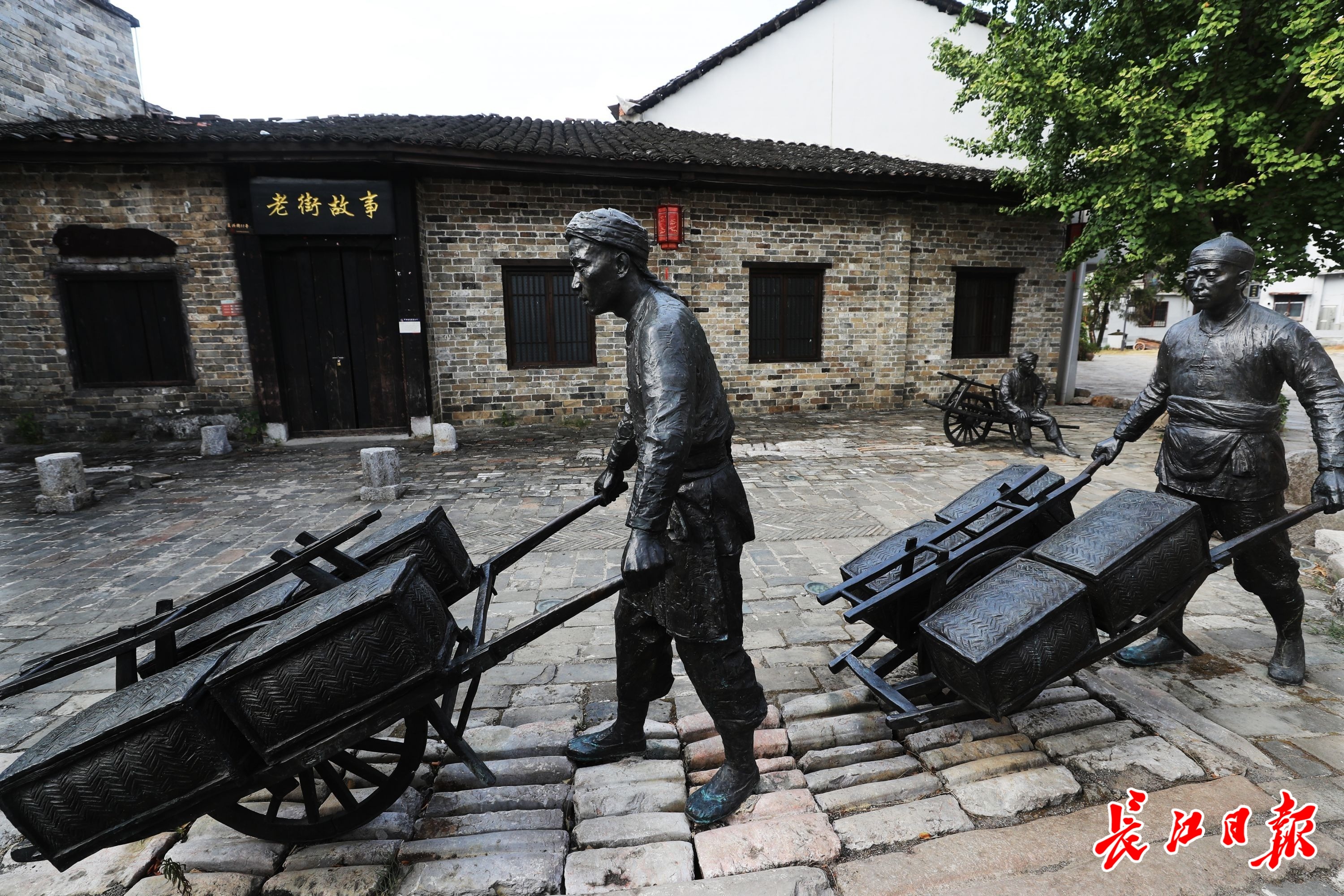
Scenery of Yangu Town, Yanglou, Chibi City, Hubei Province. Changjiang Daily reporter Qiu Yan
A small leaf, connecting Eurasia in series, and the visits to the members of the group immersed in the magical story of tea leaves.
Wang Rui, a senior student of the School of Journalism and Information Communication of Huazhong University of Science and Technology, asked experts: "Wanli Tea Ceremony", in addition to the economic value of resource exchange and interoperability, what kind of cultural value and practical significance have it?
Huang Baiquan replied that "Wanli Tea Ceremony" is actually a channel to use tea as a medium to political, economic, and cultural exchanges and contacts. In addition, there are two important historical and cultural values: one is to use tea as a media, from closed to globalization. "Wanli Tea Ceremony" provides a broad world market for the development of China's tea industry, drives the development of the rural commodity economy, increases the commodity rate of tea, has spawned a number of commercial towns, provided a lot of employment opportunities, promoted tea The source of the source, the regions along the line, and the entire economic and social development of China.
Another more important cultural value is ethnic blending and civilization. "Wanli Tea Ceremony" is a carrier and bridge of cultural exchanges between north and south of the country, the cultural exchanges between China, Russia, and Western countries. Tea has become a medium for the interaction and exchanges between north and south ethnic groups. "Wanli Tea Ceremony" has become an important link for the consciousness of the Chinese community of the Chinese nation. It is also a bridge between China to exchange with Russia, Central Asia, and Europe. Through "Wanli Tea Ceremony", the ancient Chinese culture and living customs were introduced to Europe, and European industrial civilization and commercial civilization were also introduced to China.
"Wanli Tea Ceremony has promoted the cultural exchanges and civilizations of Eastern and Western Eastern and West. Nowadays, tea diplomacy is still an important means among national exchanges." Huang Baiquan said that Chibi has been with more than 20 countries along the "Belt and Road" and more than 30 in China and more than 30 domestic China. Cities, establish friendly cooperation relationships. In 2020, the Hubei Provincial Government used 30,000 yuan of Chibi blue brick tea as a national gift to give back to Mongolia to thank Mongolia for supporting China to give 30,000 sheep. Sheep came to tea and became a new story of "Wanli Tea Ceremony".
"Hehe World" is the core quality of Chinese tea ceremony
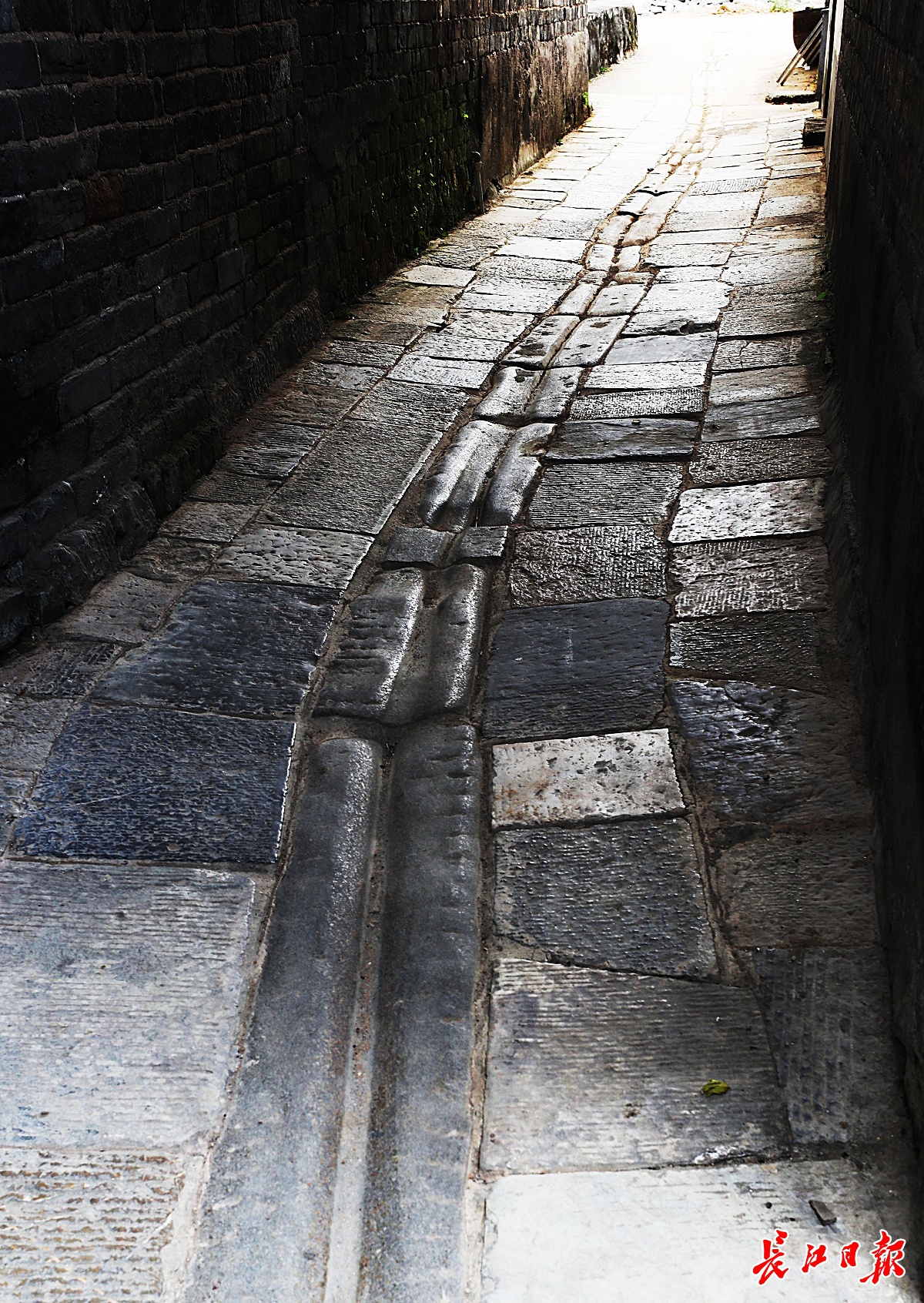
In the ancient town of Yanglou, Chibi City, Hubei Province, the ruts of ruts of "chicken bay" of tea "chicken buses" in the past. Changjiang Daily reporter Qiu Yan
On the afternoon of August 24th, the visiting group came to the Tianmen Lu Yu Memorial Hall. The wooden relief in the Lu Gong Temple recorded Lu Yu's extraordinary experience and the achievements of the work of tea science, so that the members of the visiting group were born with the respect of Lu Yu.
Mr. Lu Mingyu, the vice president of the Lu Yu Research Association of Tianmen City, Hubei Province, the vice president of the Lu Yu Research Association of Tianmen City, Hubei Province, introduced that the Tea Sutra written by the Tea Saint Lu Yu is the world's first comprehensive system summarizing the history of tea, Supreme Monasum of Tea Technology and Tea Culture.
Lu Mingyu introduced to the visiting group that Lu Yu founded the Chinese tea ceremony; promoted the development of the production of tea industry; promoted the prosperity and development of Chinese tea culture; and set an example of "frugal morality" for future generations. "The Tea Scripture" has raised tea from the material level to the spiritual level, and puts forward "good and frugal" as a person who is tea. It shows that the good quality of tea should be matched with people with beautiful morals and the spirit of Chinese tea ceremony. In addition, Lu Yu also reflects the concepts of "integrity and respect", "clear and respectful", "integrity and respect", and the simplification of tea sets, the simplification of tea sets, and the streamlined of tea sets, and the streamlined tea set, and the tea set. Essence
Huang Baiquan said that "Hehe World" is the core quality of Chinese tea ceremony.After thousands of years of inheritance in Chinese tea culture, the essence of Confucianism, Buddhism and Taoism has formed the humanistic spirit of the unity of heaven and man, and it has created the soul of the nation of "harmony as expensive".Harmony, peace, and cooperation are the highest state pursuit of Chinese tea culture, and it is a rare spiritual resources for building a community of human destiny.(Changjiang Daily reporter Li Jianhua Wang Weiqi)
【Edit: Zhang Jing】
For more exciting content, please download the "Da Wuhan" client in the major application markets.
- END -
Completed her last wish of Yiwu 92 -year -old grandmother donated 1 million yuan to support resistance
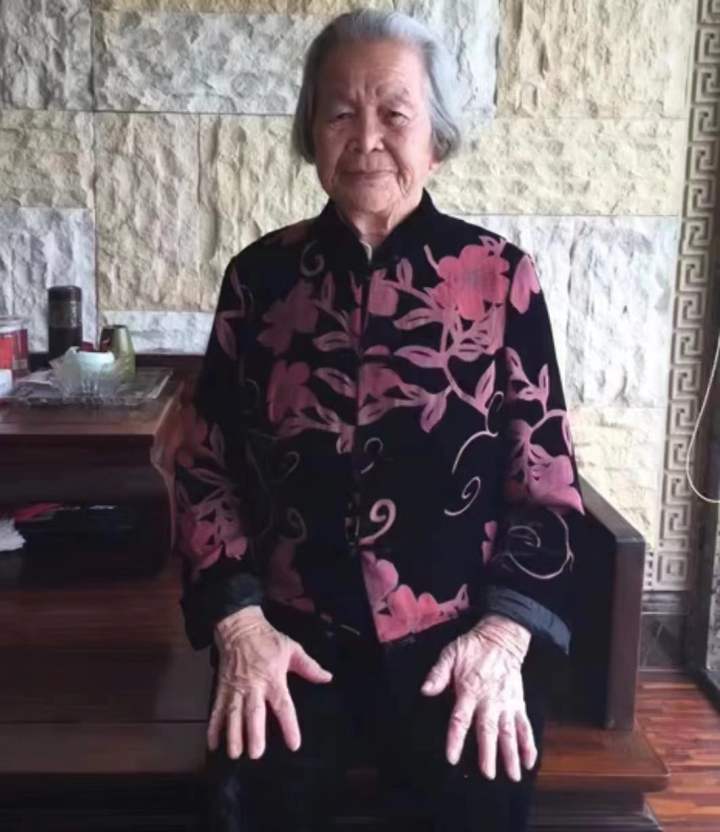
Zhejiang News Client reporter He Xianjun Ye Mengting Sharing Alliance Yiwu Station...
During the legal period of fishing, fishery ships cannot stop at will
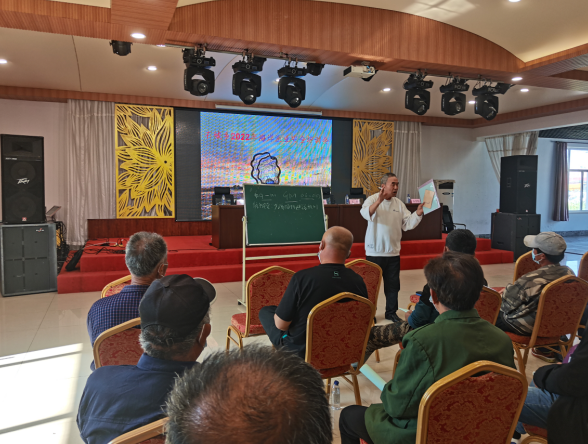
During the legal period of fishing, fishery ships should be parked at the fishery ...